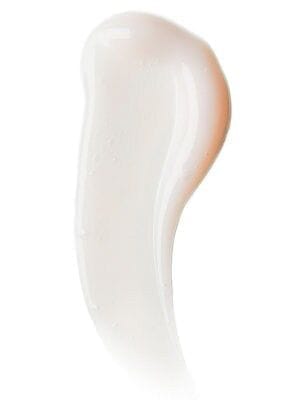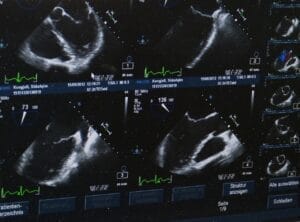Vitamin B12 is a water-soluble vitamin. It plays a vital role in the normal functioning of the brain and nervous system. Also, for the formation of red blood cells. It is one of eight B vitamins. Food sources of B12 include animal products such as fish, meat, poultry, eggs, milk, and dairy products. Even if you consume foods that are sources of B12, your body may not absorb enough to meet your needs. For example, only about 1% of the vitamin B12 in food is absorbed.
What Happens When Your Vitamin B12 Is Low?


 4.7
4.7
Would you like to receive information about the operations from Vanity Doctors?
As Vanity, we can give you information about the operation you are considering.
Ask the DoctorSome people are born with low levels of Vitamin B12 in their bodies. Because they do not produce enough intrinsic factor, which is necessary to absorb this vitamin from food. Others lose their ability to absorb Vitamin B12 later in life due to certain medical conditions.
If you are suffering from low levels of Vitamin B12, you may experience the following B12 deficiency symptoms:
- Nausea
- Vomiting
- Diarrhea
- Constipation
- Loss of appetite
- A lack of vitamin B12 may cause:
- Anemia (low red blood cell count)
- Weakness and fatigue
- Slow heart rate (bradycardia)
- Numbness in hands or feet
- Dementia
How to Measure Vitamin B12 Level
Vitamin B12 is an essential vitamin, meaning that you need it in your body to stay healthy. However, vitamin B12 deficiency can be dangerous and lead to serious health complications if it goes untreated.
Here are ways that you can measure vitamin B12 concentration in your body.
1.Blood Test:
A blood test for vitamin B12 is very accurate, but it is more expensive than other methods. It’s also invasive and uncomfortable, although the procedure itself is simple and fast. The most common way to get a blood test for vitamin B12 is to take a sample of your blood. You can do it at the doctor’s office or local laboratory.
2.Urine Test:
You can also get a urine test for vitamin B12, which is less expensive than a blood test and sometimes more convenient as well. However, this method isn’t as accurate as a blood test. Because some people may have high levels of vitamin B12 in their urine even when they don’t have enough in their blood.
3.Stool Test:
A stool sample can be used for the analysis of vitamin B12 levels in the body. Because it contains waste products from digestion that include dietary sources of folate and cobalamin (vitamin B9). There are several types of stool tests available, but none are considered as accurate as other methods.
4.Homocysteine Level:
Doctors sometimes use homocysteine levels as a marker for vitamin B12 deficiency. Homocysteine is an amino acid that’s produced when protein breaks down in the body. One of its jobs is to help recycle damaged DNA. So, it can be used again during cellular reproduction. When homocysteine levels increase, it could mean that your body isn’t recycling waste properly. That can affect how well your cells reproduce and repair themselves after injury or infection. Having higher homocysteine levels doesn’t always mean you have low levels of B vitamins or other nutrients that help break.
The Most Common Cause of Vitamin B12 Deficiency
The most common cause of vitamin B12 deficiency is inadequate intake. But can also be due to a defect in absorption. As with all vitamins and minerals, you must get enough B12 from your diet or supplements to meet your needs.
Inadequate Intake
The most common cause of vitamin B12 deficiency is inadequate intake. This can happen because people may not eat enough foods such as meat and fish that contain B12. Or they may have difficulty absorbing B12 from food.
Malabsorption
Some people have difficulty absorbing vitamin B12. Because they have a digestive disorder called atrophic gastritis, which causes stomach cells to shrink and produce less acid. The acid is needed to digest food and release nutrients into the bloodstream. Without adequate acid, it’s difficult for your body to absorb many nutrients including vitamin B12. People who have had their stomach removed or who have an intestinal disorder called celiac disease.
How Does Vitamin B12 Cause Anemia?
Vitamin B12 deficiency is an important cause of anemia. Because it affects the production of red blood cells in the bone marrow. When you do not have enough vitamin B12, your body cannot make enough new red blood cells to replace old ones. So, instead of having a steady stream of new red blood cells coming out of the bone marrow with every heartbeat. There will be a large gap between when one batch of red blood cells leaves the bone marrow and when another batch enters it. This causes your hemoglobin level to drop until eventually, you become extremely deficient and anemic.
Anemia caused by vitamin B12 deficiency symptoms may not be obvious at first. Because it takes many months or even years for B12 deficiency symptoms to develop after the initial onset of deficiency. During this time period, you may experience:
- fatigue,
- weakness,
- pale skin,
- nausea and
- loss of appetite.
If left untreated long enough, this form of anemia can result in serious conditions like heart failure or dementia.
What Causes Vitamin B12 Deficiency in Adults
B12 deficiency is a common problem in older adults, and it can be dangerous. In fact, it’s the most common vitamin deficiency in older people.
This is partly because our ability to absorb B12 decreases as we age. So, many people end up with less than they need.
But there are other factors that contribute to B12 deficiency:
- a poor diet or
- certain diseases may also play a role.
A low level of B12 can lead to problems with the nervous system. Such as balance issues, memory loss, and confusion. It can also cause fatigue and muscle weakness.
B12 deficiency isn’t always easy to spot because symptoms often don’t appear until the levels are quite low.
How to Treat Vitamin B12 Deficiency
B12 deficiency can be treated with injections. But it can take several months for the effects to be felt. The body has limited reserves of B12, and it is lost very slowly. You will not notice any immediate improvement in your symptoms.
The amount of time it takes for an improvement in symptoms depends on how long it has been since you last consumed enough B12. Let’s say you have had a deficiency for five years or more. So, it could take up to three years for your body’s stores to be replenished.
Where Does B12 Come from Naturally
B12 is found in the soil and sea, where it is made by bacteria. Animals eat the bacteria and become food for other animals. Humans can get B12 from foods like meat, eggs, and milk that come from animals that eat plants containing B12.
Bacteria make B12 in their intestines. The bacteria are then consumed by animals such as cows and chickens. People who eat these animals as food get B12 from their diet.






